Babies are the most important things in the world to their parents. They are also some of the funniest people you will ever meet! Babies laugh out loud when they can’t stop laughing. If you want to know when babies laugh, just watch them while they’re playing with their parents or siblings. It doesn’t matter if it’s a game of peek-a-boo or wrestling on the floor, babies will be giggling and laughing so hard that they start crying!
In This Article
- When should your baby start to laugh or Smile?
- What makes babies start laughing out loud?
- 5 ways to Encourage Baby Laughing Out!
- 1. Cuddle your baby!
- 2. Play peekaboo!
- 3. Make silly faces at your baby while he or she plays by themselves.
- 4. Give your baby toys.
- 5. Tickle your baby until he or she starts laughing hysterically.
- What are the benefits of laughing?
- What’s important when babies laugh?
- Is too much laughing harm the baby?
- Why do babies smile in their dreams?
When should your baby start to laugh or Smile?
- Most babies start laughing around four months old. This is when they are developing their senses and trying to learn how the world works.
- Babies also spend a lot of time sleeping, which means that you will probably only see your baby laugh out loud once or twice each day.
- By eight months old, most babies will be smiling all day long as well as giggling at everything around them.
A lot of parents want to know what makes their baby laugh so hard. Some things might surprise you because it’s not always something funny like tickling or playing peek-a-boo with a blanket. Sometimes just talking in silly voices can make your baby giggle wildly! Other times being chased by an older can have the same effect on your baby.
It’s also important to keep in mind that babies are easily distracted. This means that it might take a while for your baby to get used to you or other people he or she meets regularly! It can seem like your baby is ignoring you if they don’t immediately look at the face staring down at them, but this isn’t true.
Babies spend more time looking around and observing their surroundings than focusing on individual things within the whole picture because they’re still learning about everything. The good news is that once your infant gets past his or her first year of life, all bets are off when it comes to laughing out loud! They will laugh just as much as any adult does because they have learned so many new things during their first year of life.
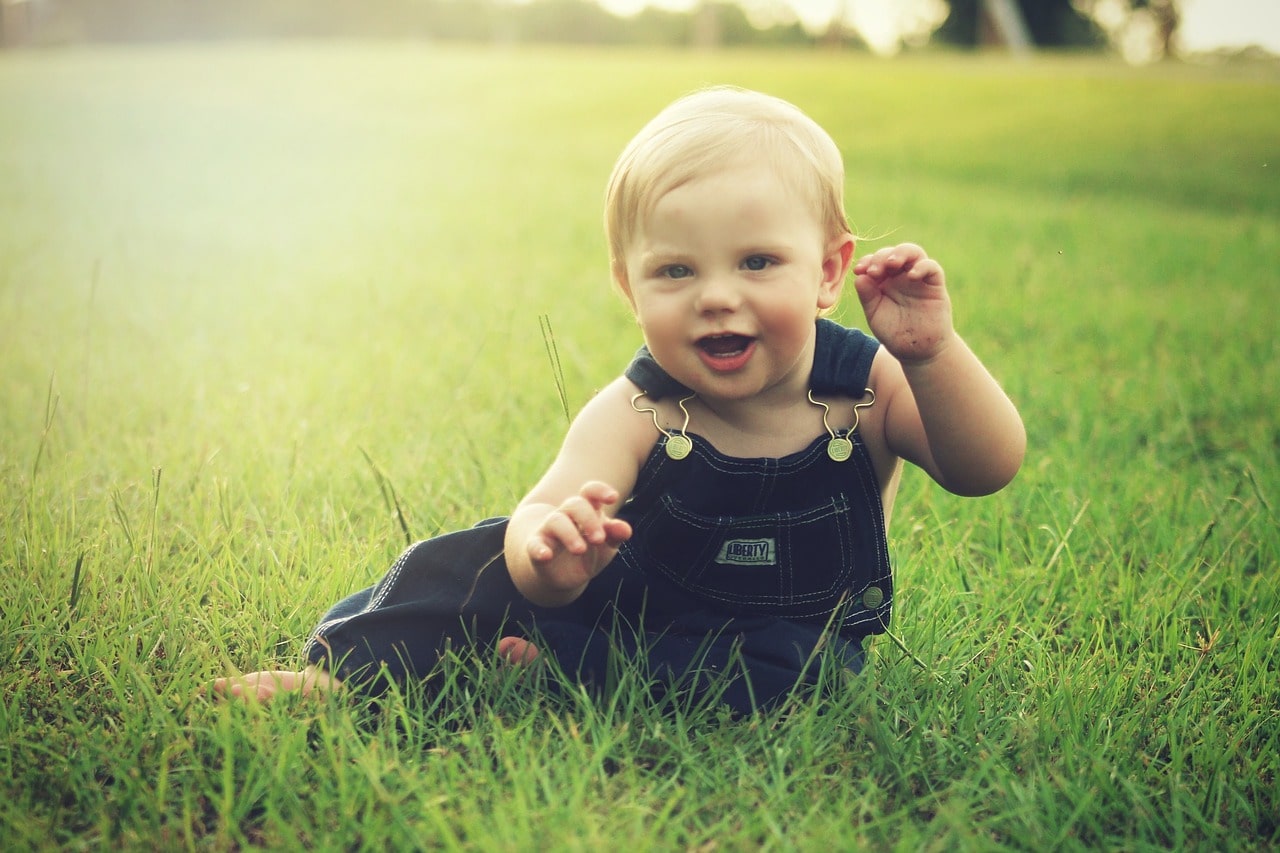
What makes babies start laughing out loud?
Babies laugh the most when they’re comfortable and happy. Once your baby gets used to you and their surroundings, they will laugh out loud at anything – especially if it’s something new.
If you want to make your baby laugh, try tickling him or her gently. Babies love this game and they will be rolling around laughing in no time. Babies also start giggling when they’re playing with siblings or parents.
Sometimes babies even surprise themselves by accidentally starting to laugh because something that’s happening is so funny! They might also laugh if they have a toy with them. However, it’s important to remember that once your baby is old enough to sit up on their own and roll around the floor, he or she will be entertained by almost anything. This means they might laugh out loud at objects that are completely normal for older kids.
One even needs to keep in mind that they can’t always make babies start laughing out loud, but if they’re having fun and enjoying the time together it will happen naturally.
5 ways to Encourage Baby Laughing Out!
1. Cuddle your baby!
Babies love to be held and snuggled, so make sure that you’re giving them plenty of affection. The more they laugh with you now, the more comfortable they will be when it’s time for them to learn how to talk.
2. Play peekaboo!
This game is great for older babies because once they can crawl or walk around on their own this game won’t lose its entertainment value as quickly as other games might. Peekaboo also lets you see just how much your infant loves being in the world and finding out what’s happening everywhere he or she turns!
3. Make silly faces at your baby while he or she plays by themselves.
Babies love looking up at you and seeing your face, so make sure that you’re always smiling. This will teach them to smile whenever they look at someone who loves them.
4. Give your baby toys.
Sometimes babies are fine playing by themselves for a few minutes if something is interesting within their reach. However, when you will give them toys, they will start smiling and laughing as well by playing with them.
5. Tickle your baby until he or she starts laughing hysterically.
It might take some time for this game to get old because babies love being touched anywhere – even places where it makes us squirm as adults like our tummies.
Laughing is contagious no matter how young or old we are, and it’s something all of us do when we’re happy.
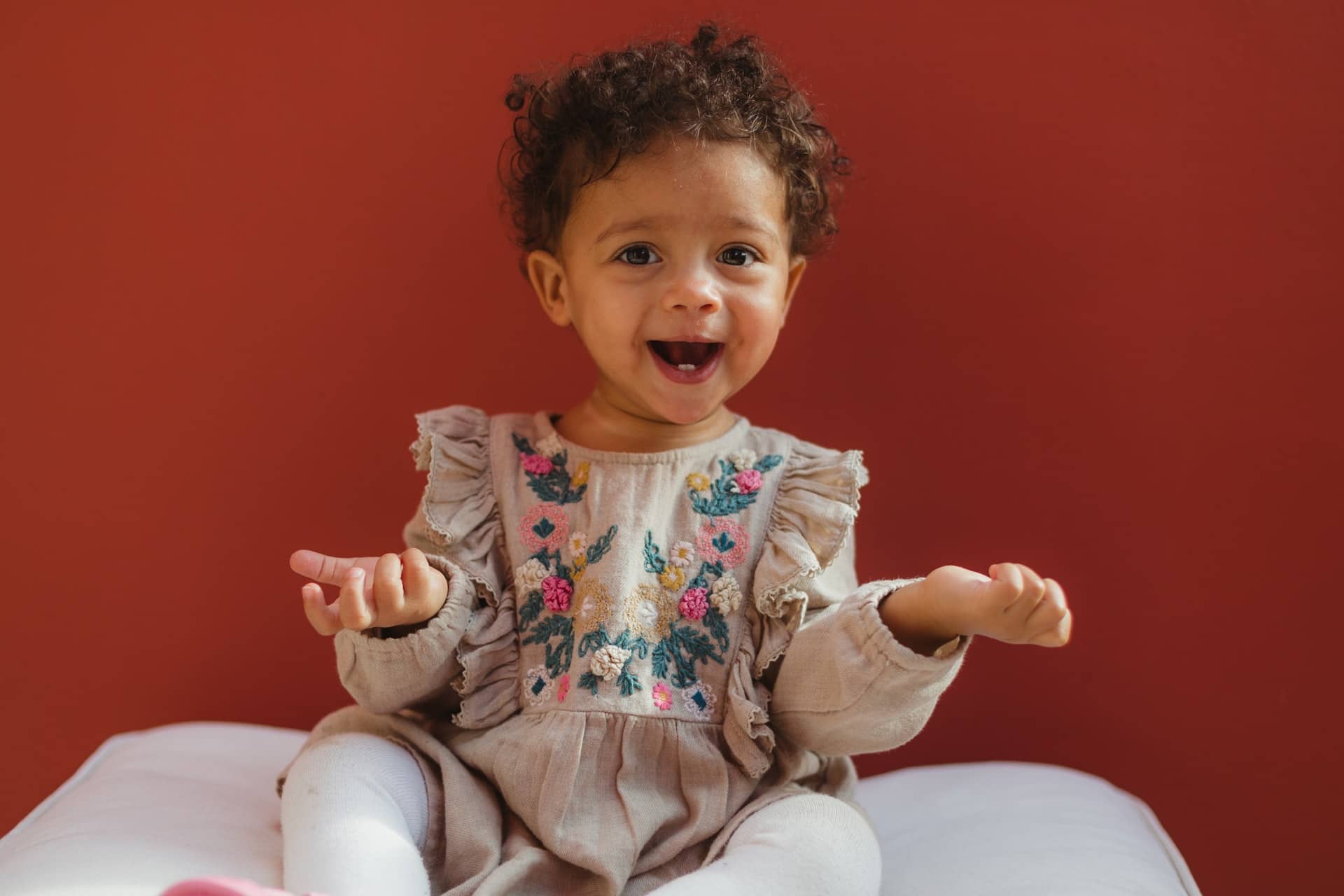
What are the benefits of laughing?
Laughing has many benefits that are both physical and mental. Laughing is good for our health because it releases endorphins in the body which make us feel happy! These hormones also reduce stress, improve overall moods, relieve tension headaches, help with breathing problems like asthma or allergies, helps protect against illnesses by helping to build up antibodies, and increases metabolism. We can lose weight faster, sleep better at night, boosts the immune system function making one less likely to get sick. Laughing is also good for our mental health because it makes us feel confident and comfortable in the world.
If your baby learns to laugh at silly things, he or she will seem more open-minded when meeting new people! Laughter can be contagious even between strangers, so if you’re laughing with someone who seems nervous about something they might let their guard down faster than they would otherwise – which means a great first impression every time.
As you can see there are many benefits to making sure your infant laughs out loud as much as possible during his or her young life. It’s important not to force laughter though, since this will make your baby afraid of being tickled instead of happy by it.
What’s important when babies laugh?
When a baby laughs out loud he or she starts developing social skills since they’re learning how to interact with others around them. This means laughing should be encouraged whenever possible – especially if you have other children who might be around to hear your baby’s happy noise.
Whenever you notice your infant laughing, make sure that you smile and laugh along with them! Babies often start copying the behavior of others when they’re trying to learn how to interact in social settings. So this means if we want our babies to keep making loud noises we need to encourage it by continuing ourselves whenever possible.
Keeping these benefits in mind, ensure your child learns how valuable laughter can be. Babies who laugh out loud are happier and more confident, which means they’re less likely to cry when something goes wrong. It’s important not to take this the wrong way though – laughter is also great for releasing stress or sadness, so it can be used as a healthy coping mechanism too.
Babies usually start laughing at about four months old, but their first laughs tend to sound like hiccups instead of real chuckles. They might giggle sometimes before then if you tickle them in just the right spot, but most parents agree that real laughs don’t happen until six weeks later on average. If your baby isn’t smiling much yet it doesn’t mean he or she won’t ever learn to smile.
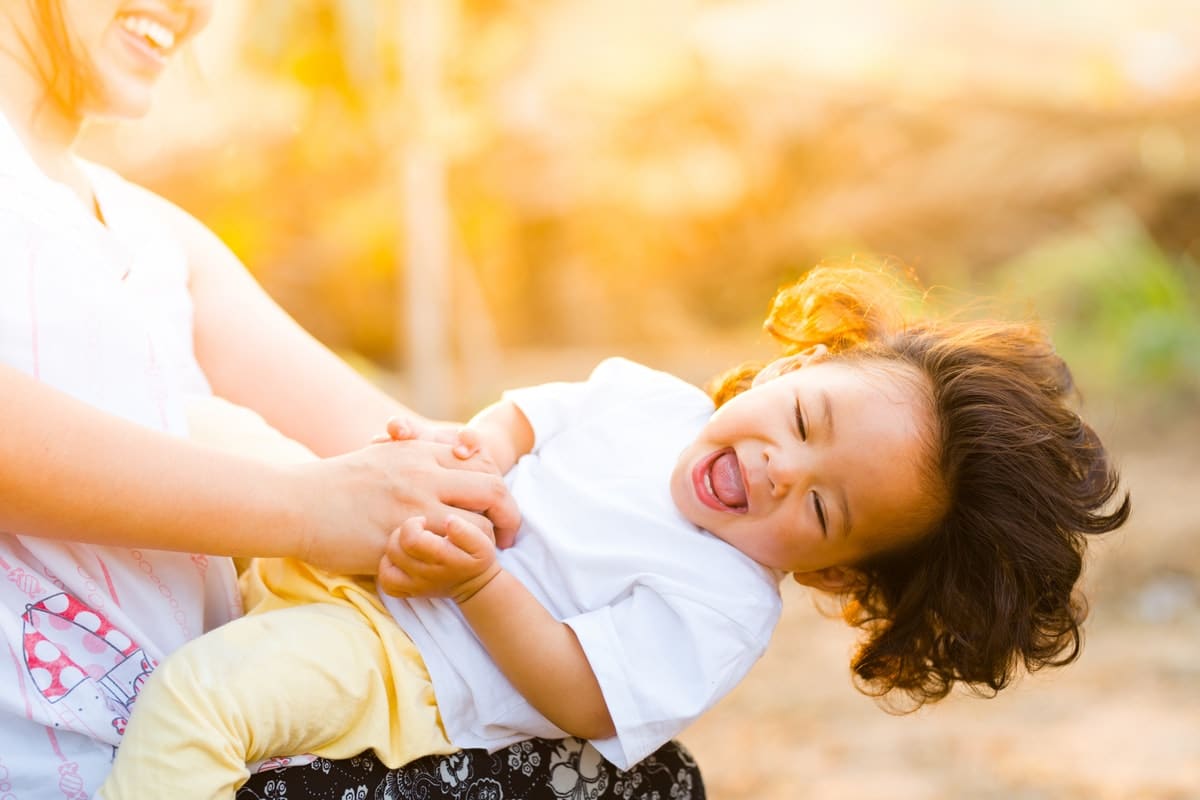
Is too much laughing harm the baby?
There’s no real limit to how much your baby should laugh – even if they’re laughing all day long it just means that something is making them very happy! Babies don’t have a reason to hold back laughter until the age of three when their sense of embarrassment starts developing.
If you’re ever concerned about whether too much giggling is hurting your infant, remember that doctors agree that laughter can help make children stronger and healthier. So, let your child smile and laugh with their heart.
Why do babies smile in their dreams?
That’s a great question! While it might seem like your baby would be sleeping too deeply to notice anything that happens. But remember that they’re far more aware than you realize. You probably already know this because your infant can sometimes act out vivid scenes while he or she sleeps – which means even if they don’t want to do something while awake, there are some things they dream about.
Babies usually start dreaming when their brains develop enough for them to understand images and sounds around them better. This process starts taking place at three months old on average. Most infants laugh out loud by six weeks this means they can tend to start smiling in their sleep soon after. Since laughing is contagious, this might explain why your baby is giggling in his or her sleep.
If you’re concerned about your infant dreaming, then relax. This is because babies are more aware than you realize. It also reflects that your child is doing development with time.
Wrapping up!
Laughter brings people together, which can help build your child’s confidence and make it easier for them to learn about humor. It has also been proven that laughter can release stress and sadness, so it’s important to let your child smile and laugh whenever they want.

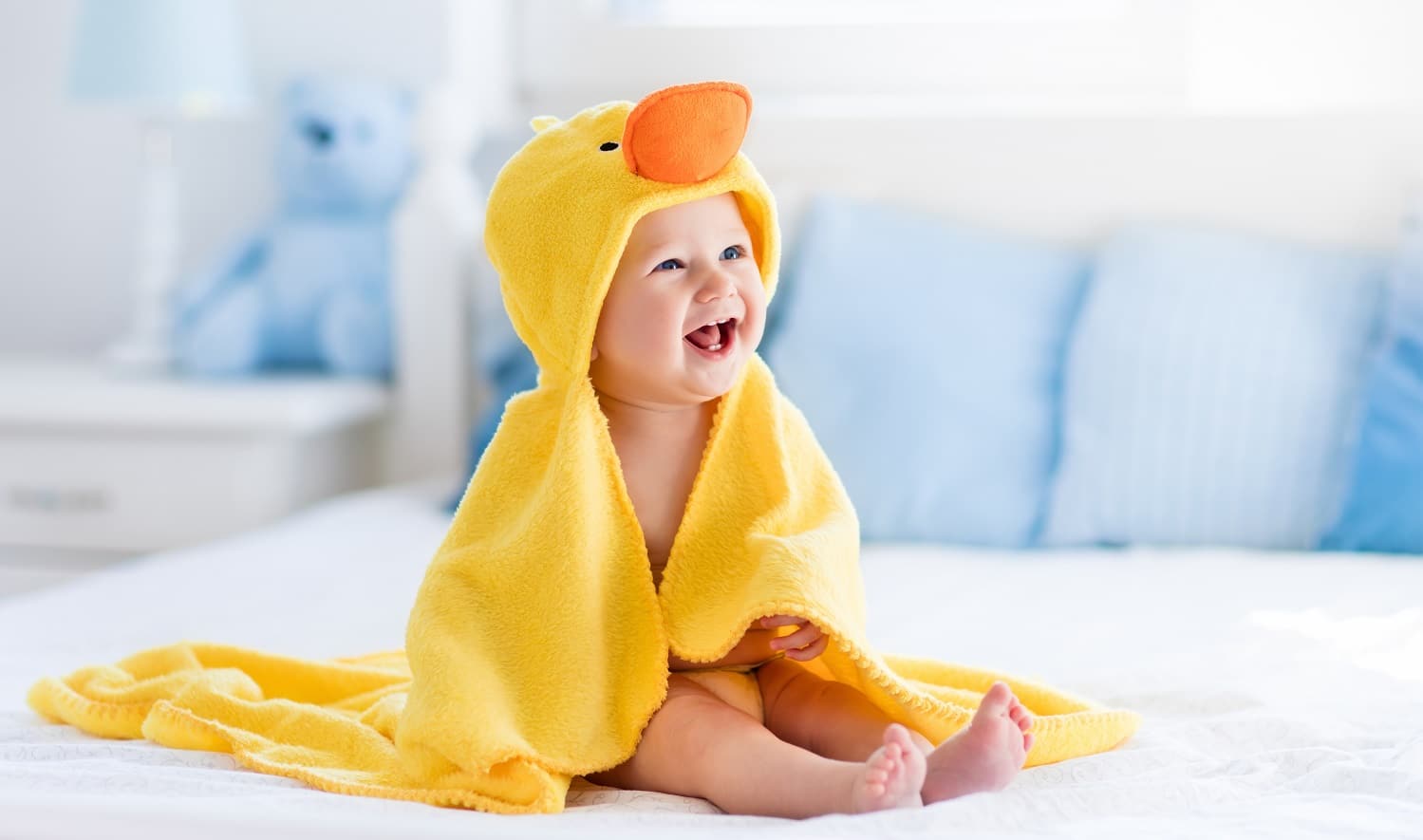
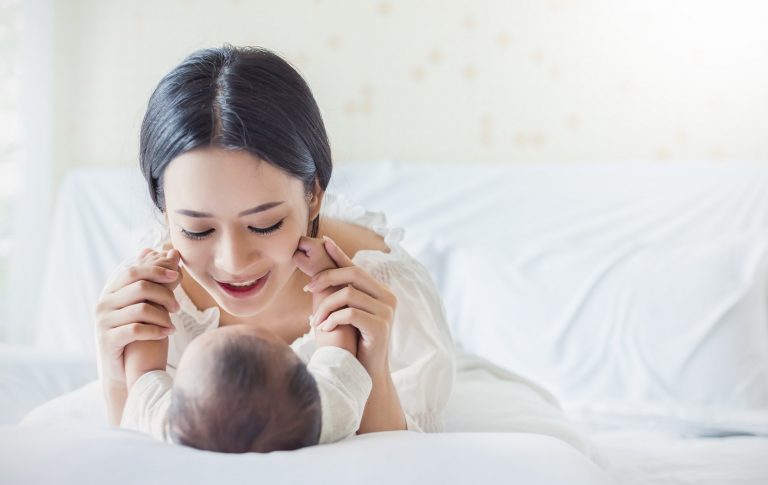
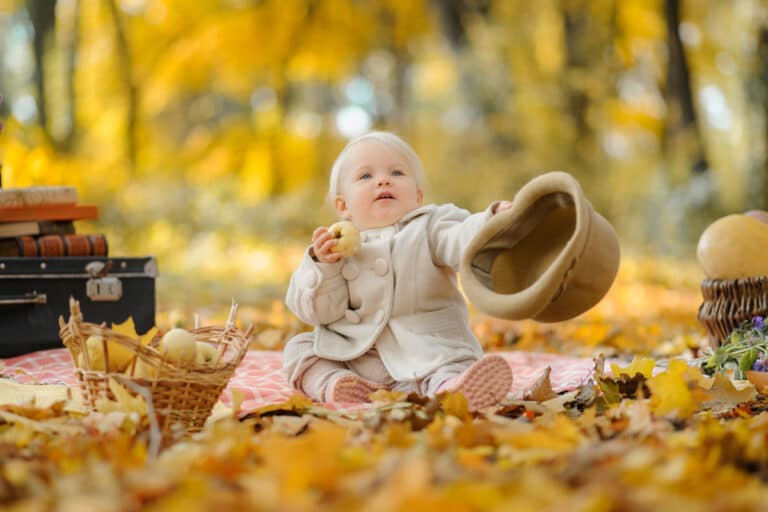
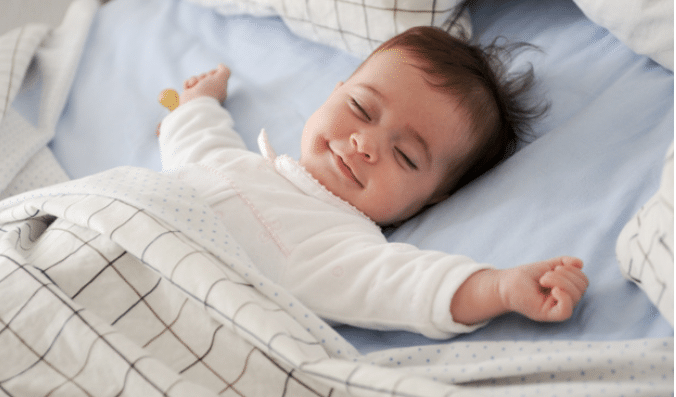
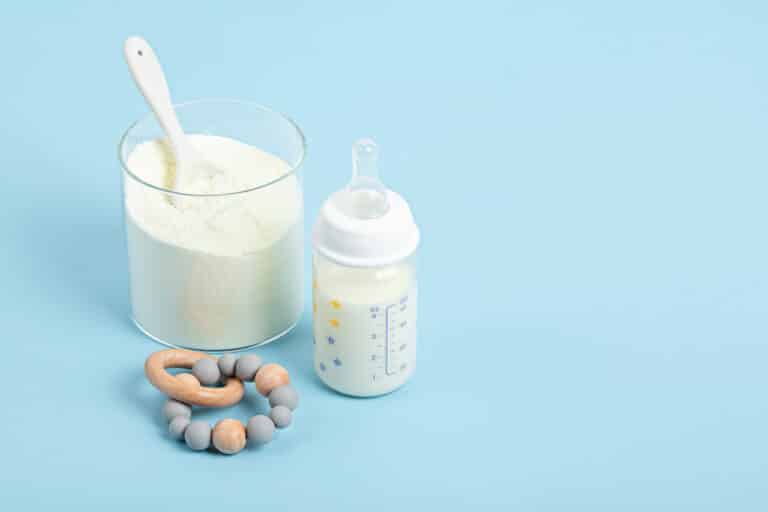




![Home Renovation Guide [2025]](/app/uploads/2021/04/design-hacks-1-378x300.jpg)
